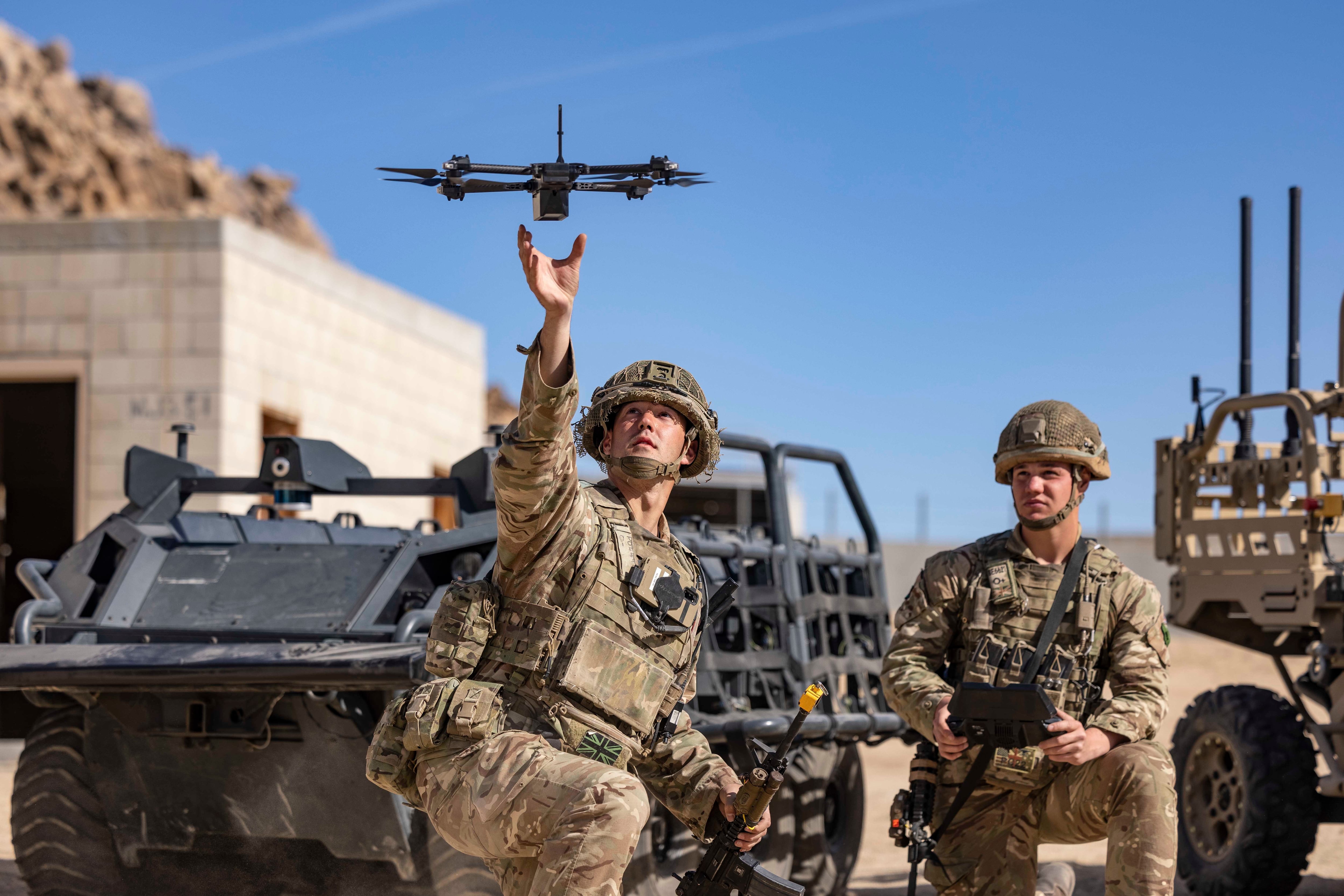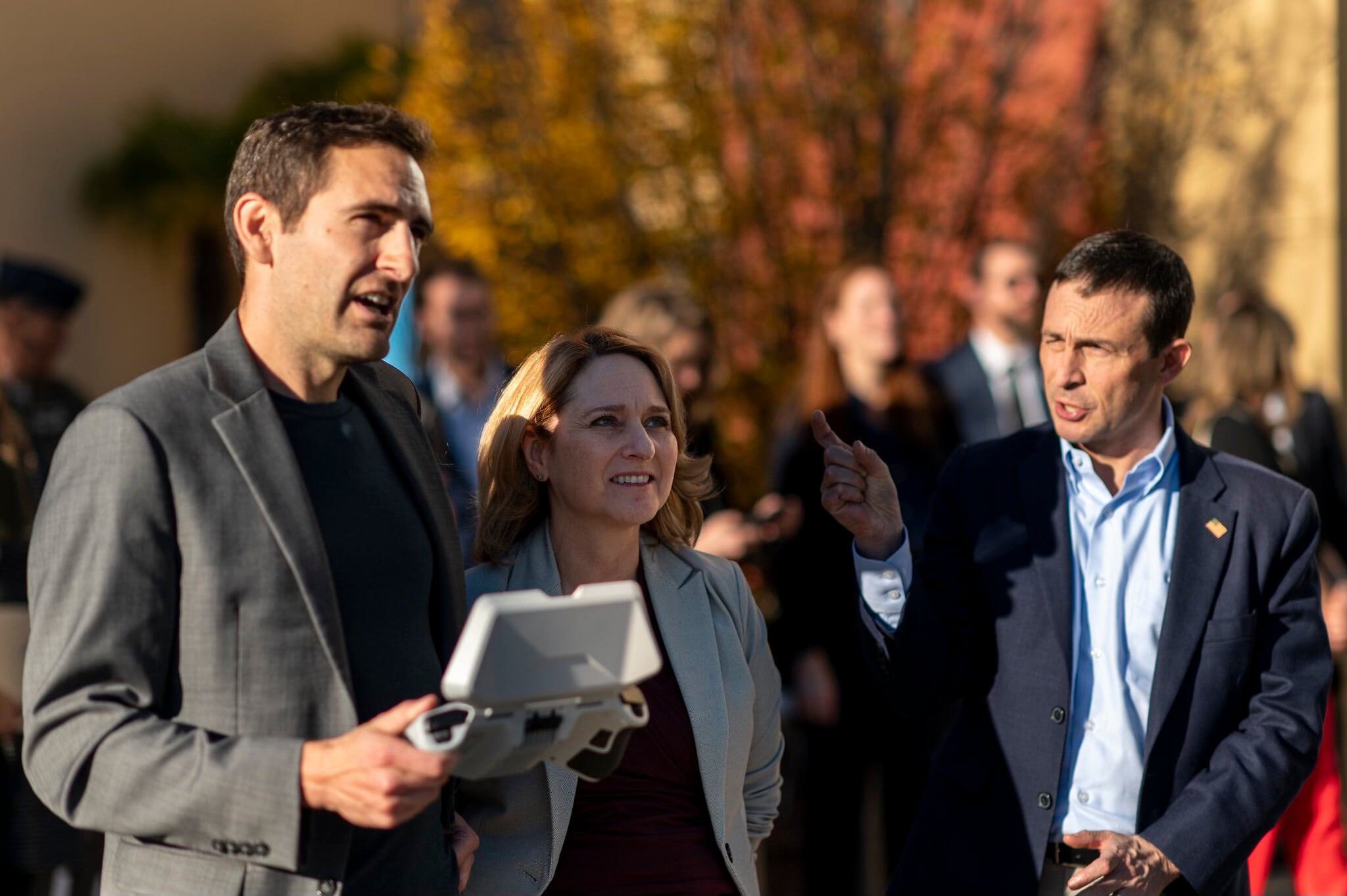U.S. dronemaker Skydio said it has started hiring employees in Ukraine, a first step in an effort to expand its business there.
CEO Adam Bry described the work in an interview with Defense News Wednesday, hours before he testified before Congress.
“I’ve never met drone users as sophisticated as the folks in Ukraine,” Bry said. “We want a team there.”
For now, the hires are in the single digits, with employees focused on engineering and customer support. Bry said he could see Skydio manufacturing drones in the country later on, but thinks building smaller components — like the equipment that helps prevent jamming — is more realistic at first.
The war in Ukraine is the first to feature widespread use of small, commercial style drones. In the last two years, it’s become a sandbox for companies around the world trying to test their equipment. U.S. firms including AeroVironment to Shield AI have sent their products to help defend Ukraine and see how they perform in intense electronic warfare environments.
That said, most of the drones used in Ukraine so far have been made in China, the world’s dominant manufacturer in the sector.
Bry went as far to say that Ukraine’s needs are driving Skydio’s product development, even when that doesn’t overlap with the U.S. government.
His company’s main defense contract is with the Army’s Short Range Reconnaissance program, which Skydio won in 2021. Defense firms are now competing for that contract’s second iteration, to be selected in 2025, and Skydio is putting forward its new X10D drone to do so.
Ukraine is also interested in that drone. Its Ministry of Interior has formally requested “thousands” of them — though Bry wouldn’t specify how many — atop the thousand or so drones Skydio has already sent Kyiv since the full-scale invasion began in 2022.
The requirements laid out by the Army are similar to what Ukraine needs, Bry said, but they’re not one for one.
“This has been a shift in strategy for us,” he said. “Where there’s discrepancy, we’re prioritizing what we’re seeing in Ukraine.”
The main difference between the two sets of requirements is in resiliency. Ukraine’s biggest need is for drones that can counter intense Russian jamming. That is not what the short-range reconnaissance program has focused on to this point, Bry said.
Still his argument is that Ukraine is the “proving ground” for small drones. If they can survive there, that should be a good sales pitch for the U.S. military as well. But that’s not guaranteed, Bry acknowledged.
“It’s a risk from a business standpoint,” he said. “But I think it’s a risk worth taking.”
Noah Robertson is the Pentagon reporter at Defense News. He previously covered national security for the Christian Science Monitor. He holds a bachelor’s degree in English and government from the College of William & Mary in his hometown of Williamsburg, Virginia.







